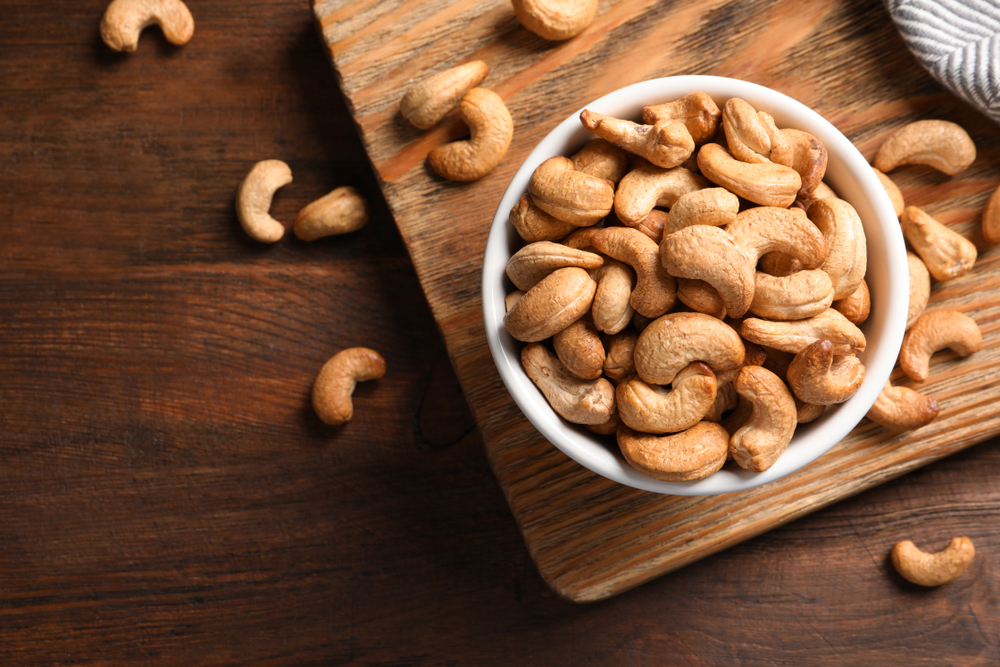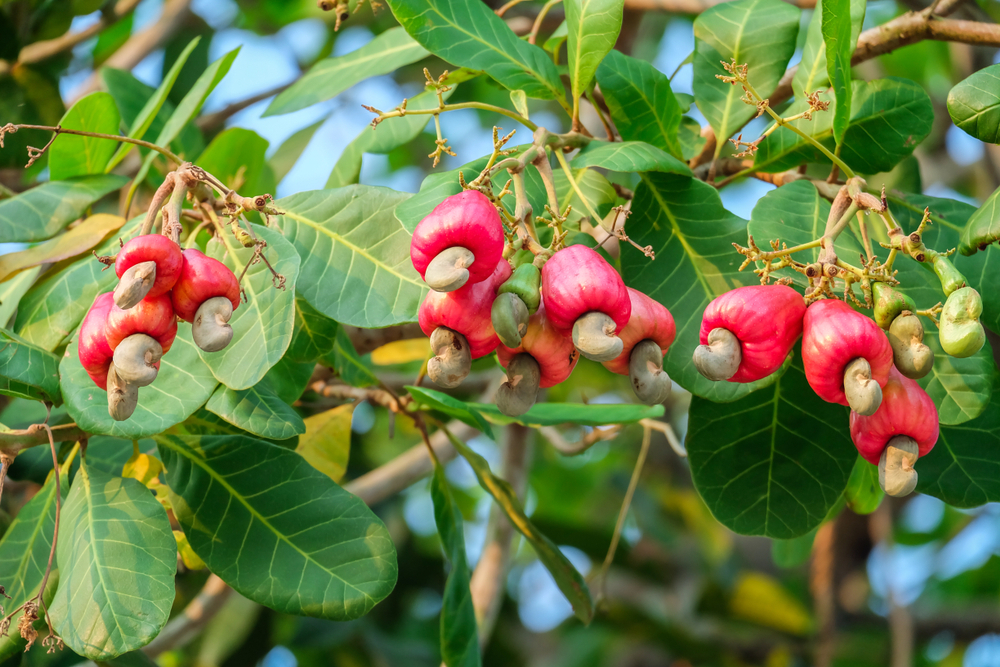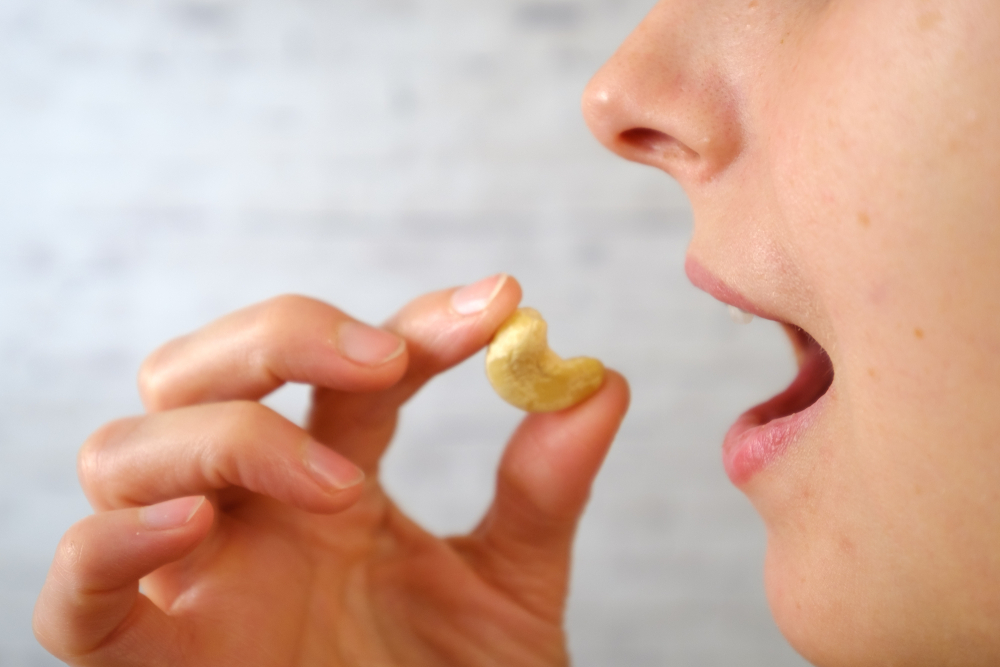How Many Cashews to Eat Per Day? A Nutritious Insight

When it comes to munching on delightful snacks, cashews often occupy a special place on our list. Renowned for their rich, buttery flavour and numerous health benefits, these kidney-shaped nuts have won the hearts of many. A question that often arises, however, is “how many cashews to eat per day?” This blog will aim to comprehensively answer that question with an in-depth analysis of the recommended daily cashew intake.
- Understanding the Cashew: A Nutrient Powerhouse
- How Many Cashews to Eat Per Day: The Balanced Approach
- Cashews and Heart Health
- Cashews and Diabetes
- Other Health Benefits of Cashews
- A Word of Caution
- Quality Matters: Choosing the Right Cashews
- The Role of Cashews in a Balanced Diet
- So, How Much Cashew Should You Eat Per Day?
- Conclusion
1 Understanding the Cashew: A Nutrient Powerhouse
Before we delve into the specifics of how many cashews to consume, let’s first appreciate their incredible nutritional value. Cashews are packed with essential vitamins, minerals, and antioxidants. They’re rich in monounsaturated fats, which promote heart health, and also contain significant amounts of dietary fiber, protein, and other key nutrients such as magnesium and copper.
However, like any food, cashews must be consumed in moderation. Despite their nutritional benefits, they’re also high in calories and fat, which can lead to weight gain if eaten excessively. So, how much cashew should one eat per day?
2 How Many Cashews to Eat Per Day: The Balanced Approach

Nutritionists typically recommend eating a handful of mixed nuts per day, roughly 1 ounce or 28 grams, to garner their health benefits. This amount typically translates to about 15 to 18 medium-sized cashew nuts. However, the exact number can vary depending on a person’s individual dietary needs, metabolism, physical activity level, and overall health status.
For individuals aiming to maintain or lose weight, it is crucial to consider the caloric content of cashews. One ounce of cashews contains approximately 157 calories, primarily from fat (12 grams) and protein (5 grams). Therefore, while cashews are nutritionally dense, they are also calorically dense, and consuming them in excess can contribute to weight gain.
Similarly, for individuals with a higher energy expenditure, like athletes or those with physically demanding jobs, a slightly higher quantity of cashews might be acceptable, as their bodies require more calories and nutrients to function optimally.
3 Cashews and Heart Health
One of the standout benefits of cashews is their contribution to heart health. They’re rich in monounsaturated and polyunsaturated fats, which help lower LDL cholesterol (the “bad” cholesterol) and increase HDL cholesterol (the “good” cholesterol). This can reduce the risk of heart disease when consumed as part of a balanced diet. Despite the high-fat content, the type of fat present in cashews is heart-healthy. However, this doesn’t mean one can consume them limitlessly. The key is balancing their intake with other nutritious food sources to create a well-rounded diet.
4 Cashews and Diabetes

When considering how many cashews to eat per day, it’s also worth noting their potential benefits for individuals with diabetes. Cashews have a low glycemic index, meaning they cause a slow, gradual rise in blood sugar levels, rather than a sudden spike. This can be beneficial for managing blood sugar levels in people with diabetes. However, due to their high-calorie content, portion control is still necessary.
5 Other Health Benefits of Cashews
Beyond heart health and diabetes management, cashews offer a multitude of other health benefits. They are a good source of dietary fiber, which aids in digestion and may help prevent obesity and type 2 diabetes. They also contain significant amounts of magnesium, which plays a crucial role in over 300 enzymatic reactions within the body, including the metabolism of food and synthesis of fatty acids and proteins.
Moreover, cashews are rich in antioxidants, which combat oxidative stress in the body and can help lower the risk of chronic diseases like cancer, heart disease, and premature aging. Regularly incorporating a moderate amount of cashews in your diet can contribute to overall health and wellbeing.
6 A Word of Caution

While cashews offer a plethora of health benefits, they should not be consumed in excess. Remember, balance is key to any healthy diet. Consuming too many cashews can lead to weight gain due to their high caloric content. Similarly, cashews contain oxalates, compounds that can contribute to the formation of kidney stones if consumed excessively.
Furthermore, if you’re allergic to tree nuts, it’s best to avoid cashews altogether, as they can trigger allergic reactions, which can range from mild to severe.
7 Quality Matters: Choosing the Right Cashews
Another crucial factor to consider when incorporating cashews into your diet is their quality. Always opt for raw or dry roasted cashews without added salt, sugar, or oil to reap the maximum health benefits. Some commercially available cashews can be heavily salted or sweetened, negating their health benefits and contributing to increased sodium or sugar intake.
8 The Role of Cashews in a Balanced Diet
Finally, remember that while cashews are nutritionally dense, they’re not a stand-alone solution to health. They should be part of a balanced, varied diet that includes plenty of fruits, vegetables, whole grains, lean proteins, and other healthy fats. A variety of foods will provide a broad spectrum of nutrients, promoting optimal health and preventing nutritional deficiencies.
While we’ve focused on the question “how many cashews can I eat a day,” the principles outlined here apply to all nuts and seeds. They’re nutrient-dense foods that offer significant health benefits when consumed in moderation as part of a balanced diet.
9 So, How Much Cashew Should You Eat Per Day?

While there isn’t a definitive answer that suits everyone, as a rule of thumb, a handful (or about 15 to 18 medium-sized cashews) seems to be a balanced quantity for most individuals. However, individual needs may vary, and it’s always best to consult with a dietitian or healthcare provider who understands your personal health needs and goals.
10 Conclusion
Cashews, like other nuts, provide a wealth of nutritional benefits and can play a vital role in a healthy diet. They’re delicious, versatile, and packed with nutrients, making them a great choice for a snack or as an addition to meals. However, as with all good things, moderation is key. Remember to balance your cashew consumption with a variety of other nutritious foods, and always pay attention to portion sizes to avoid excessive calorie intake. With this balanced approach, you can enjoy the rich, buttery goodness of cashews while also taking strides towards your health goals.
Remember, it’s not just about “how many cashews can I eat a day” but “how can I incorporate cashews into a balanced, nutritious diet?” Happy munching!
Community Q&A
About This Article
Hardik Jethva is an experienced author of the BestCheck family. Working from scratch, he has developed an amazing interest in testing and writing about different products in a transparent manner. His writing skills got more audience for BestCheck. Apart from his professional life, Hardik has his eyes on travelling, meditation, eating healthy food, socializing with people, and car rides.
This article has been viewed 494 times.



